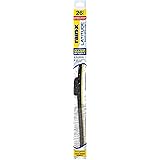
Understanding Comprehensive Guides and Their Importance
Comprehensive guides are detailed resources designed to provide thorough information on a particular subject or product, serving as invaluable tools for consumers and enthusiasts alike. Their primary purpose is to enhance understanding and facilitate informed decision-making by presenting a wealth of information in an easily digestible format. A well-structured comprehensive guide typically includes extensive research, ensuring that the information is both accurate and relevant. Such depth of research is vital, as it allows readers to gain insights the moment they consult these resources.
To constitute a truly comprehensive guide, clarity of information is paramount. This involves breaking down complex topics into understandable segments and presenting them in a logical flow. Additionally, the inclusion of visuals, such as diagrams, screenshots, and infographics, can further enhance comprehension. Examples and case studies are equally important, offering practical applications of theoretical content and enabling readers to visualize how the information can be used in real scenarios.
There are various types of comprehensive guides available, each serving its unique purpose. User manuals provide step-by-step instructions for operating products, while how-to articles encompass a broader range of topics, guiding users in achieving specific tasks or goals. In-depth product analyses compare different items within a category, helping consumers determine which option suits their needs best. By addressing a spectrum of subjects, these guides play a critical role in simplifying complex subjects and supporting users in navigating diverse choices.
The benefits of comprehensive guides extend beyond mere information dissemination. They help simplify complicated topics, making them more approachable for the average reader. Moreover, by equipping users with detailed insights and comparisons, these guides empower them during the decision-making process, ultimately enhancing their overall experience. This multifaceted approach underscores the importance of comprehensive guides as essential resources in our increasingly intricate world.
Product Reviews: A Deep Dive into Evaluation and Resources
Product reviews serve as a crucial component of the modern consumer landscape, designed to inform potential buyers about various products and services. Unlike general content that merely provides summaries or overviews, product reviews delve deeper into the evaluation process. They encompass detailed assessments, including unbiased opinions, in-depth examinations of product features, and thoughtful comparisons with similar offerings. One of the central tenets of effective product reviews is their commitment to objectivity, ensuring that the reviewer presents facts and experiences without undue favoritism.
Key characteristics of an effective product review include clarity and thoroughness. A comprehensive analysis should address critical aspects such as ease of use, durability, performance, and value for money. Furthermore, integrating user testimonials enriches the review, offering real-world experiences that resonate with prospective buyers. By including a variety of perspectives, from expert evaluations to consumer feedback, these reviews allow individuals to form a holistic understanding of the product in question.
The significance of product reviews extends beyond mere assessments. They play a pivotal role in the buying journey, shaping consumer perceptions and influencing purchasing decisions. In an age where information is readily available, consumers increasingly rely on product reviews to navigate their options. Positive and negative reviews alike can guide potential buyers towards making informed choices that align with their needs and preferences.
To find trustworthy product reviews, consumers can explore a variety of resources, both online and offline. Websites dedicated to product comparisons, forums where users share personal experiences, and social media platforms can provide valuable insights. However, it is essential to critically evaluate the credibility of these reviews. Consumers should consider the reviewer’s track record, potential biases, and the overall consistency of feedback before making a purchase decision. This due diligence can significantly enhance the reliability of the information gathered and ensure a satisfactory buying experience.




